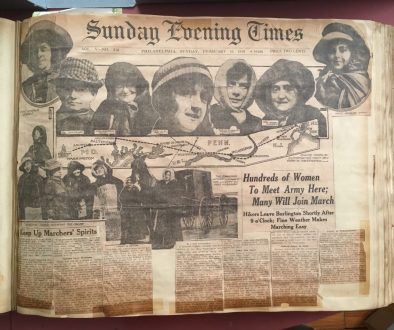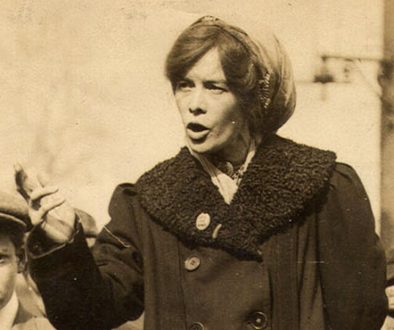The Privilege of History
One of my favorite TV shows is Henry Louis Gates’ “Finding Your Roots” where a couple of celebrities get the benefit of genealogical tools and DNA tracking to discover who their ancestors are and where they came from. Needless to say, it’s transformative for his guests, particularly black and brown people, whose histories were quite literally erased, and those whose ancestors migrated here, fleeing not only impossible conditions but also the ability to trace their roots. Sometimes the guest celebrities break down, even without Gates prompting them to feel for the camera. The most poignant are African-Americans who learn about the struggles of the forbearers, not just in general, but specifically. One young man was so overwhelmed that it literally was a show-stopper. They did an extra session a month later to capture his reactions. He still seemed dazed and deeply moved by what he had learned and struggling with a changed identity.
And here I am, surrounded by piles of historical documents from my family. So much that I just started another site to post some family history, www.johnstonfreemanfamily.com, a work in progress. The site is an attempt to put historical documents somewhere findable. Like the two way correspondence of my great great grandparents during the Civil War. Or the early dictionary that has a family list in the flyleaf that goes way back. And I have not even gotten to the correspondence of my parents during WWII and their experience of war and leftist organizing during the war on both sides of the Atlantic. I have loaded documents of my maternal grandfather who was a stalwart in the printer’s union. And my cousin who signed the Port Huron Statement founding SDS. Some documents are mostly personal rather than historically significant but they all give me some clues about what life was like.
This amount of personal artifacts and documents is “an embarrassment of riches.” It is a privilege. And let’s be clear, a white privilege. Think what it takes to save this stuff: first of all, it helps to own a house. To own a house implies a level of income that, theoretically at least, allows subsequent generations to inherit or buy a house, get an education, have a career. One of the documents I just found was a mortgage for a tiny little house in the late forties. (I lived in the attic of that little box with my brothers until I was 12.) When I read it I noticed an exclusion notice stating that you could not sell to black people; the restriction had expired by the time my family sold it, but it still gave me a shiver. So, if you were black, you might have had the income to buy a house but still not be able to. Systemic Racism in Action.
My niece Susan is making a pilgrimage with a couple of her friends to hold Elisabeth Freeman’s scrapbook in their hands and to immerse themselves in records of her suffrage and other work. It is a privilege to have it and to be able to share it. It is also humbling to think how many people can’t trace their heritage beyond a grandparent, if that.
If this country ever gets to give reparations to the people whose enslaved ancestors built this country–and I hope they do–a genealogical search should be part of it. Giving people information about their roots would be a reparation worth more than whatever monetary sum is on offer. It would be life changing.




